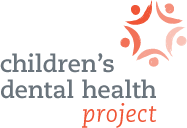The Children's Dental Health Project's blog
Advancing oral health in 2019
Many health advocates are reviewing their priorities and opportunities for action in 2019, especially in the wake of a midterm election during which health care was a high-priority issue for voters. The U.S. House of Representatives has undergone a change in party control, and legislative initiatives will almost certainly shift as a result. Additionally, federal agencies have also begun to signal their priorities. Each of these elements has a bearing on how we as advocates focus our attention in the coming year.
Here are some aspects of the current landscape that CDHP has been taking into account as we shift into the New Year.
Public support for Medicaid
 Voters showed their preference for expanding affordable health care in multiple states this November. In Idaho, Nebraska, and Utah, ballot measures passed to expand Medicaid coverage to low-wage adults in their states under the authority granted by the Affordable Care Act (ACA). Kansas’ and Maine’s previous efforts to expand Medicaid were cut short by their governors, via a veto and refusal to implement, respectively. But both states will have new gubernatorial leadership come January, making Medicaid expansion much more likely there. As we’ve seen before, expansion efforts can have a significant impact on the availability of meaningful dental coverage, which undoubtedly has benefits not just for those adults but also for their children and families.
Voters showed their preference for expanding affordable health care in multiple states this November. In Idaho, Nebraska, and Utah, ballot measures passed to expand Medicaid coverage to low-wage adults in their states under the authority granted by the Affordable Care Act (ACA). Kansas’ and Maine’s previous efforts to expand Medicaid were cut short by their governors, via a veto and refusal to implement, respectively. But both states will have new gubernatorial leadership come January, making Medicaid expansion much more likely there. As we’ve seen before, expansion efforts can have a significant impact on the availability of meaningful dental coverage, which undoubtedly has benefits not just for those adults but also for their children and families.
Ongoing policy threats to Medicaid
Despite the clear demand among voters for policies that make it easier and more affordable to access needed health care, the Centers for Medicare and Medicaid Services (CMS) continues advancing measures that could weaken coverage and erect barriers to care. As CDHP and our partners have previously noted, CMS has approved Medicaid waivers that create unnecessary administrative hurdles for low-wage parents and adults. Arkansas’ Medicaid work requirement policy and the burdensome reporting that goes along with it have already resulted in nearly 17,000 people losing health and dental benefits. The early results from Arkansas were alarming enough that the Medicaid and CHIP Payment and Access Commission (MACPAC) weighed in. The federal advisory group took the unusual step of calling on CMS to hold any further disenrollment from the state’s Medicaid program until more meaningful evaluation criteria and outreach efforts could be developed. MACPAC also urged the Administration to ensure that any state waivers under consideration include robust evaluation and monitoring plans - an appeal echoed by CDHP and more than 40 other organizations.
Making dental coverage difficult to access further overlooks key evidence that poor oral health can harm a person’s ability to work or find a job.
Kentucky’s Medicaid waiver was also overwhelmingly opposed. A federal judge even determined it to be inconsistent with the objectives of the Medicaid program. Kentucky’s waiver features a number of the troubling components we previously flagged in a blog post with Families USA’s Eliot Fishman, including work requirements, premiums, and lock-out periods. For struggling adults who gained coverage under Medicaid expansion, the waiver also puts dental benefits on par with a non-essential, limited gym membership. That is, it forces people to earn points they can put toward accessing those services, rather than recognizing that oral health is health. Making dental coverage difficult to access further overlooks key evidence that poor oral health can harm a person’s ability to work or find a job. And yet, Kentucky’s waiver was recently re-approved by CMS.
Risks to families with private coverage
When it comes to private insurance, CMS has taken steps that would make flimsy insurance plans more widely available. Their actions have further muddied the waters for families looking to purchase coverage that meets their needs.
 In August, the Administration extended the period during which people could be covered by short-term limited duration health plans. Such plans do not cover the ACA’s essential health benefits (EHBs), like children’s oral health care, and do not have to cover pre-existing conditions. In November, CMS guidance proposed to double down on these insufficient plans by re-interpreting the Affordable Care Act’s section 1332 requirements for state marketplace innovation waivers. The agency is even encouraging states to use federal and state subsidies — that currently only apply to ACA-compliant plans — to support the purchase of short-term plans or other insurance options that don’t cover the EHBs or adequately protect children and families. In December, CDHP, the American Academy of Pediatric Dentistry, and American Dental Association jointly urged the agency to protect children’s oral health.
In August, the Administration extended the period during which people could be covered by short-term limited duration health plans. Such plans do not cover the ACA’s essential health benefits (EHBs), like children’s oral health care, and do not have to cover pre-existing conditions. In November, CMS guidance proposed to double down on these insufficient plans by re-interpreting the Affordable Care Act’s section 1332 requirements for state marketplace innovation waivers. The agency is even encouraging states to use federal and state subsidies — that currently only apply to ACA-compliant plans — to support the purchase of short-term plans or other insurance options that don’t cover the EHBs or adequately protect children and families. In December, CDHP, the American Academy of Pediatric Dentistry, and American Dental Association jointly urged the agency to protect children’s oral health.
Such regulatory changes could destabilize private insurance markets and reduce the likelihood that people have access to the care they need to stay healthy and happy. And that’s to say nothing of the federal court ruling that the Affordable Care Act is unconstitutional. (This decision has no immediate impact but will face a lengthy appeals process.)
Openings for policy prioritizing oral health
On the bright side, both the Surgeon General and the Secretary for Health and Human Services (HHS) have publicly recognized the fact that health, including oral health, is directly linked to individual, family, and community well-being. HHS Secretary Azar announced in November a new agency focus on the social determinants of health. He addressed the need to integrate health care with social supports, like housing. Meanwhile, the Surgeon General is considering “the effect of oral health on the community overall, well-being, and the economy” in his newly-announced report on oral health. In addition, the Surgeon General has announced a call to action initiative aimed at demonstrating the importance of health to overall community prosperity. CDHP sees endless opportunity for advancing oral health as a component of holistic child and family supports in these new focus areas.
CDHP sees endless opportunity for advancing oral health as a component of holistic child and family supports.
On the legislative front, there was little focus on oral health in 2018, with the exception of the modest Action for Dental Health Act that was signed into law in December. Moving into 2019, we hope to see more attention given to the many ways in which our oral health care system is lacking. It’s likely we’ll see Congress ramp up oversight of recent changes to health programs like Medicaid, in addition to advancing bills aimed at reducing maternal mortality and stabilizing health insurance markets.
All of these policymaking pathways hold promise for oral health. With so much at stake, CDHP will continue working with our partners — old and new, within and beyond the dental community — to take advantage of every opportunity to improve the health system for kids and their parents or caregivers. We are committed to ensuring that no family is held back from their dreams due to dental disease.
If any of these issues are important to you, please consider supporting our efforts with a financial gift, at www.cdhp.org/donate. We need your help today so we can make meaningful progress and keep up the momentum through 2019.
